Impossible Food | The Meatless Meat
Nothing is impossible with Impossible Food, plant-based meat that tastes and smells like real meat. This artificial meat has been praised by chefs and food critics and is served in more than 17,000 restaurants worldwide. The company's goal is to replace animals in the food chain by creating delicious, nutritious and sustainable meat, fish and dairy products that contain no animal ingredients.
To receive the Luxiders newsletter, sign up here.
Plant-based meats are products designed to imitate meat. While earlier products, such as tofu, tempe and seitan were meant to replace meat, the latest products attempt to imitate its taste, texture, smell, and appearance. Pat Brown, founder and CEO of Impossible Food, established the company in 2011 after realising that the biggest environmental problem on our planet was animal farming. He brought together a team of experts to figure out how to create meat, dairy, and fish without animal ingredients. In 2016, Impossible Burger was firstly launched, and they keep developing and reformulating the recipe to achieve better standards. Due to the creation process, the burger has no hormones, antibiotics and cholesterol. The Impossible Burger is a result of five years of development by Impossible Foods, the first company to rigorously study meat at the molecular level to analyse precisely why it tastes, cooks, sizzles and smells like meat.
“In 2019, we announced recipe 2.0. The latest Impossible Burger is tastier, juicier and more nutritious, featuring 30% less sodium and 40% less saturated fat than our original recipe and just as much protein as 80/20 ground beef from cows, 100% more delicious and more versatile than ever,” says Jessica Appelgren, the Vice President of Communications from Impossible Food,
.
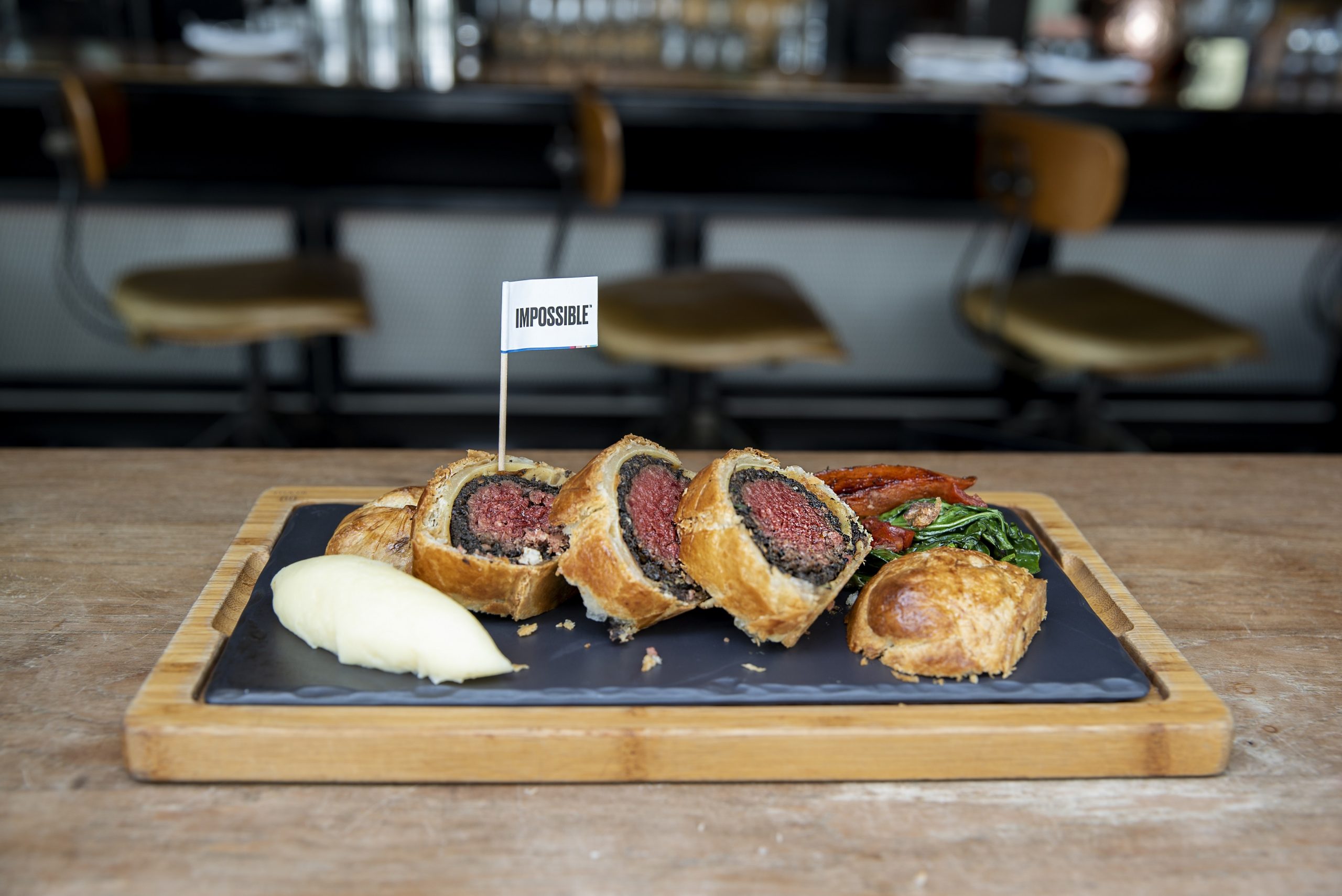
THE CREATION OF MEATLESS MEAT
As the meatless meats market has grown, the preferred descriptive language has shifted to plant-based. The term has emerged as the preferred description among consumers seeking meat-free alternatives, perhaps this is due to many consumers want to eat more plant-based foods without becoming fully vegetarian or vegan.
For people who are used to eating meat, plant-based foods raise concerns about the flavour, texture and most importantly the nutrition. Meat has certain attributes such as muscle, connective tissue, protein and fat—therefore own character and essence; a challenge for scientists to mimic them. Under the research and development, Impossible Foods discovered that one molecule serves as the "magic ingredient" that gives meat its unique, desirable flavour and aroma called "heme"; an essential molecular building block of life that occurs naturally in every animal and plant. Heme gives blood its ability to carry oxygen and it gives meat its red colour and distinctive meaty flavour. Hence Impossible Food's patty is known to "bleed" just like a real patty.
Heme is released by legume hemoglobin and when heated, it gives plant-based meat the distinctive red colouration of meat. Legume-derived hemoglobin used to be harvested from the roots of soy plants but is now produced in the lab from genetically modified yeast. The company believes this process is more environmentally friendly, sustainable and scalable than harvesting hemoglobin from soy roots. To mimic beef fat, they added coconut oil, sunflower oil, and binders.
In 2019, Burger King Sweden introduced the "50/50 Menu," where customers were randomly given either a plant-based or meat burger. After tasting the food, customers had to guess which burger they had eaten. The result was that 44% of the customers guessed it wrong; they couldn't tell the difference between the two. Burger King is one of the popular restaurants that use Impossible Burgers in their chain.
However, there is a doubt about how plant-based food can replace nutrition from meat. According to the research published in the Scientific Reports, found the metabolites differences contains in beef and plant-based meat. Researchers found the biggest differences were seen in the vitamin content, amino acids, and types of saturated and unsaturated fatty acids in both foods, among other variables. Further, the study points out that several metabolites proven to be vital to human health were discovered either exclusively or in greater amounts of beef.

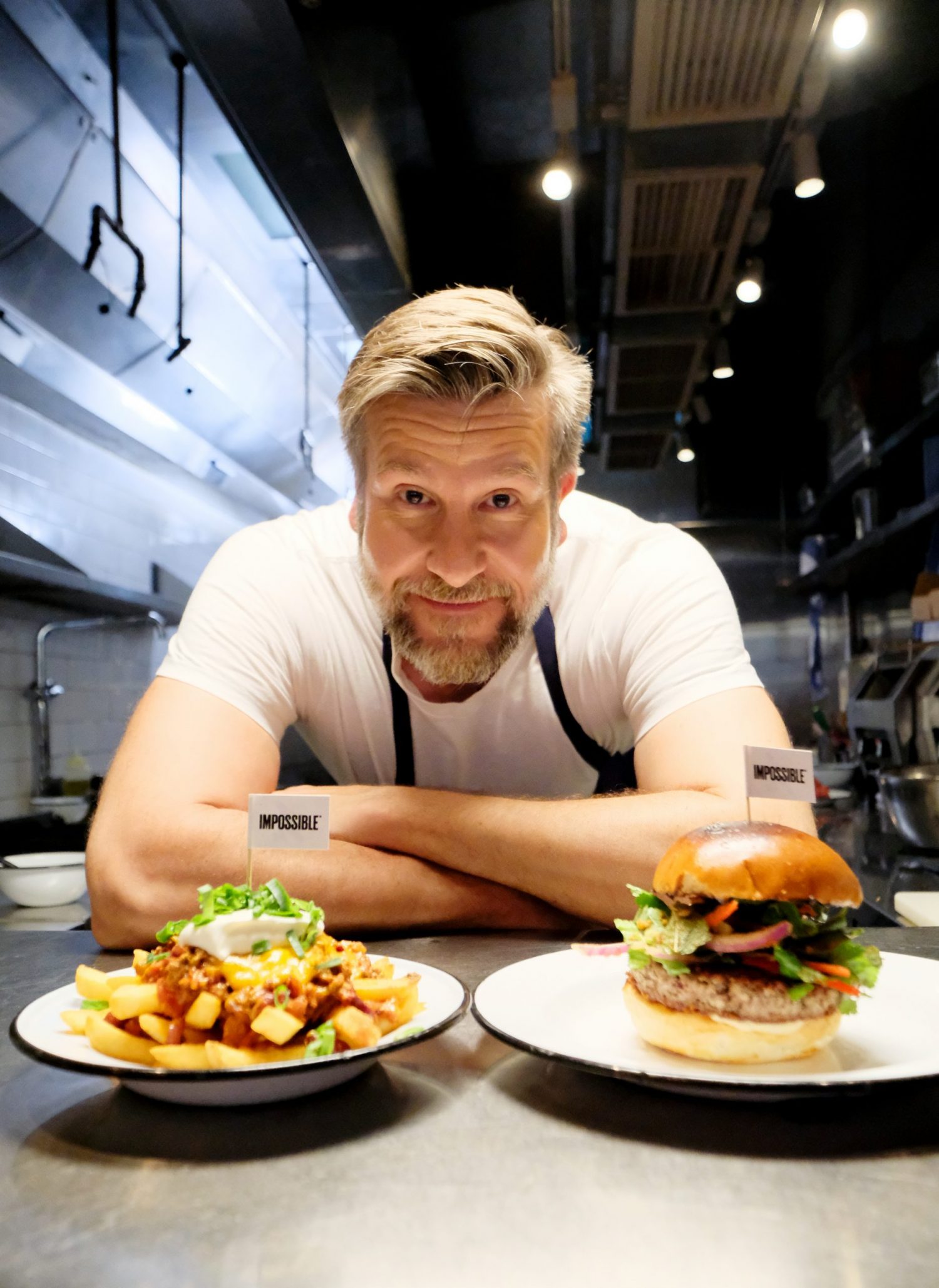
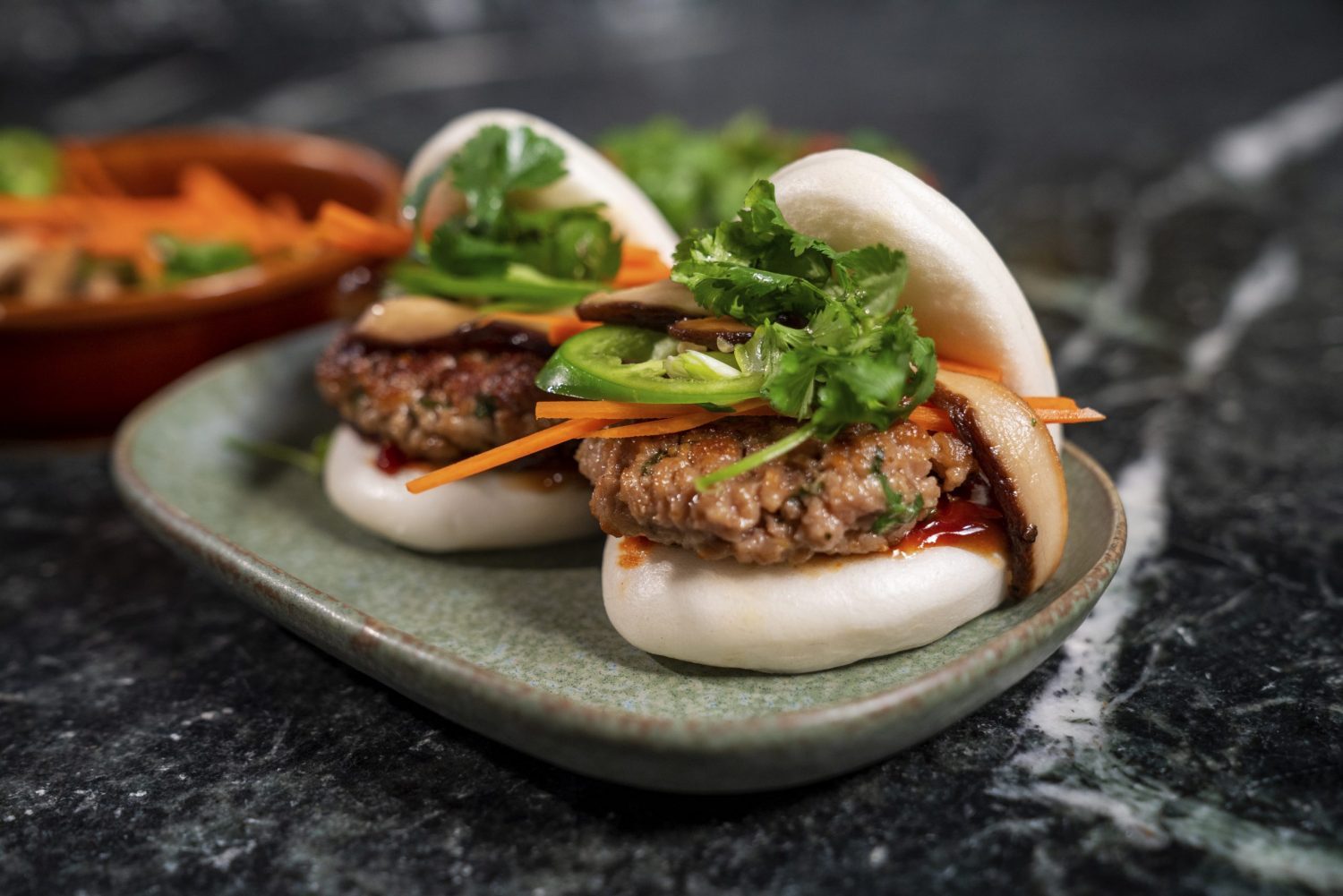
"We’ve developed a sustainable way to make the delicious meats we love -- from plants. Making nutritious meat and dairy products from plants can help preserve our natural resources and provide people around the world with safe, plentiful and affordable food,"-- Jessica Appelgren, Impossible Food's Vice President of Communications.
BUILDING A SUSTAINABLE FOOD SYSTEM
The unsustainable practice of animal farming was the main reason Brown founded Impossible Foods. His concern about the explosive growth and expansion of animal agriculture and its carbon footprint led him to create a solution that would provide a better path for the food system -and that could help save the global ecosystem and humanity. "By 2050, we face the challenge of feeding 10 billion people, and our goal is to play a major role in solving one of the planet's most pressing challenges," Appelgren says.
Further, Appelgren points out: "The vast majority of beef consumers encounter today comes from cattle conceived through artificial insemination and treated with growth-promoting hormones and antibiotics, accompanied by contamination at the slaughterhouse. Food technology has been around since the dawn of a global food system, and will continue to be the case as companies like us develop plant-based meats designed to build a sustainable food system."
In addition, there are more and more environmentally conscious chefs and restaurant entrepreneurs moving toward plant-based offerings, including Pinky Cole at The Slutty Vegan. "That's very exciting for us," Apperlgren says. Impossible Food also works with world-renowned chefs to promote other sustainability issues like human rights and equality, one of them is Chef May Chew, owner of two wildly successful restaurants in Hong Kong, Little Bao and Happy Paradise, global LGBTQ+ activist and one of Asia’s best female chefs. Chef Chew incorporates Impossible Food's meat to her luscious Chinese food selection and demonstrates the versatility of the products, such as dumplings and hot pockets.
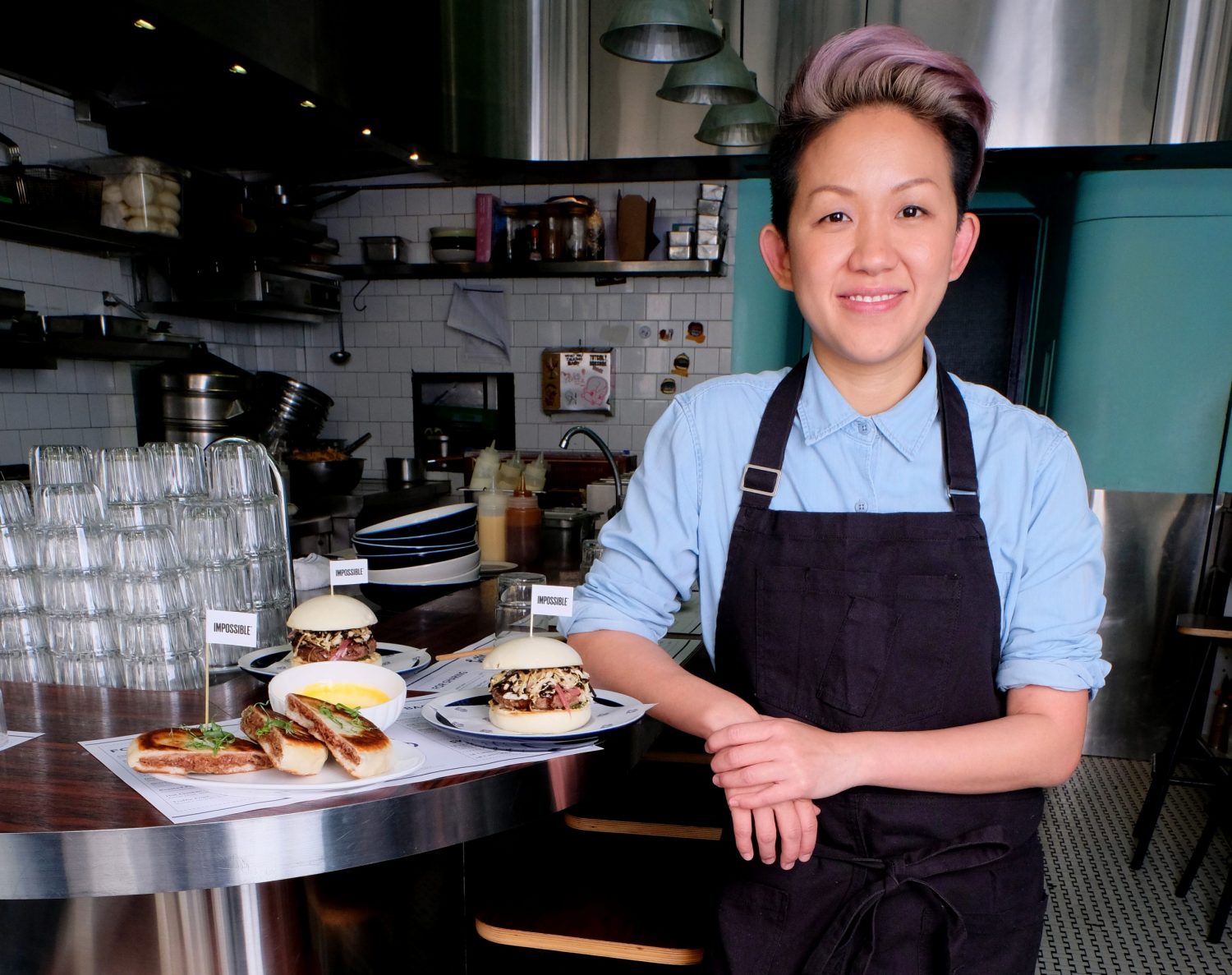
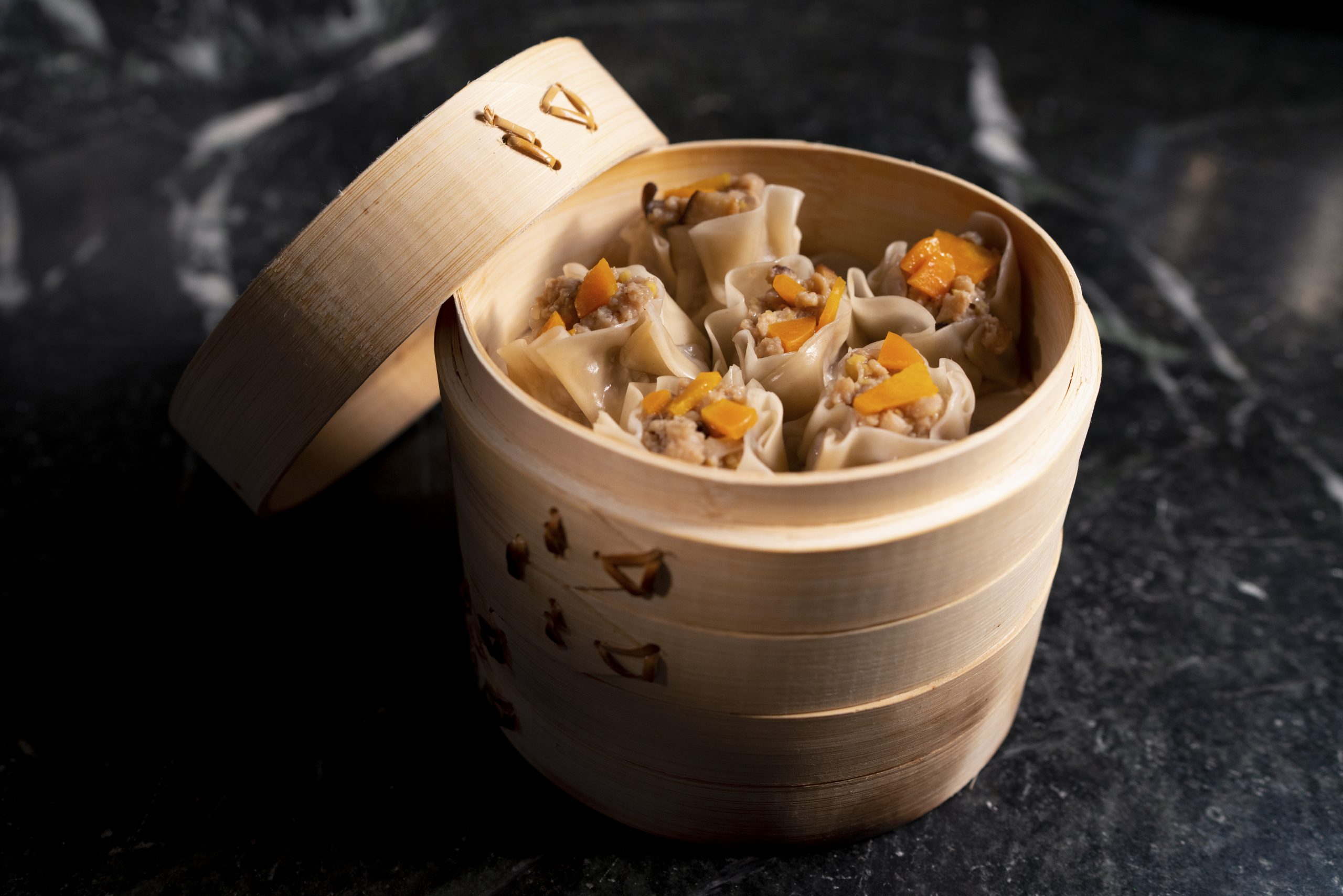
Amidst the pros and cons of meatless meat, it's kind of relieving to know that there are companies like Impossible Food that are dedicated to fighting climate change and improving our food system. At the end of the interview, Appelgren invites everyone to seek a solution and work toward a sustainable future: "We believe the climate crisis is the most urgent problem and we commend anyone working to solve it."
*All images are courtesy of Impossible Food

+ Words: Alvia Zuhadmono, Luxiders Magazine
Sweden-based writer
Connect with her through LinkedIn




